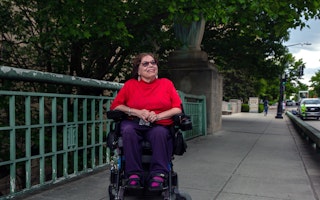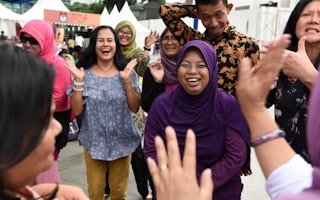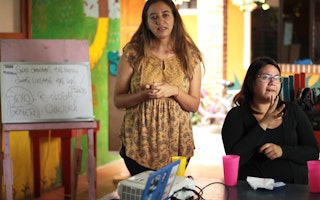“Why Am I Different?” Disability and the Right to Vote in Croatia
By Senada Halilcevic

He told me his story. He had travelled to his polling place and showed the officials his identity card. But they told him he could not vote anymore.
“I asked why I could not vote, but no one explained it to me. I was very disappointed. I follow politics, I watch the news regularly and I know for whom I would vote. But I cannot because I do not have legal capacity. Why am I different? How? No one could answer that question.”
Croatians with disabilities like Fadil Spuren Braco and me follow politics and discuss political parties. We are citizens of this country, too. We know for whom we want to vote and we know what we would ask of politicians.
When the Croatian Parliament signed and ratified the UN Convention on the Rights of Persons with Disabilities in 2007, there was a lot of joy among self-advocates—people with disabilities like me who are fighting to claim our rights. Article 29 of the Convention states that persons with disabilities have the right to participate in elections and vote any way they want to. We all hoped that we would be able to vote at last, many of us having already picked favorite candidates. Unfortunately, our joy did not last long.
Croatian law still stated that only adult citizens who have legal capacity are allowed to vote. Most persons with intellectual disabilities in Croatia are deprived of legal capacity even into adulthood. That is why we cannot get married, sign a contract, and why we could not vote in elections.
And that is also why we took action. My organization, the Association for Self Advocacy, along with Association GONG and other groups, began dialogues and negotiations with the State Election Commission, the Minister of Administration, and with other and state institutions and politicians to amend the voting law.
The new draft of the law said that if a person does not have legal capacity, a court would decide if he can vote. We could not accept this language, since it still represented a violation of a fundamental right. That is why representatives of non-governmental organizations, together with representatives of the Ministry of Social Policy and Youth, and the Office of the Ombudswoman for Persons with Disabilities went to parliamentary committee meetings and asked them not to support that proposed version.
If that version passed, we were ready to protest in front of the Ministry of Administration. We had already started preparing protest banners with messages like “Why Did You Sign the Convention on the Rights of Persons with Disabilities If You Do Not Intend to Implement It?”
But in the end, after a long debate, a new voting law passed that included our demand that everyone have the right to vote—regardless of whether they are deprived of legal capacity. To ensure that Croatians with disabilities knew about their right to vote in the elections, self-advocates made a video that aired on national television during the election campaign.
On April 14 of this year, two historic events took place in Croatia. The first was that Croatia elected its first representatives for the European Parliament. The second was that all persons deprived of legal capacity were registered on the voters list and participated in elections for the first time, equally with all other citizens.
The Association for Self Advocacy is supported by the Open Society Foundations.
Senada Halilcevic works with the Association for Self Advocacy in Croatia.


